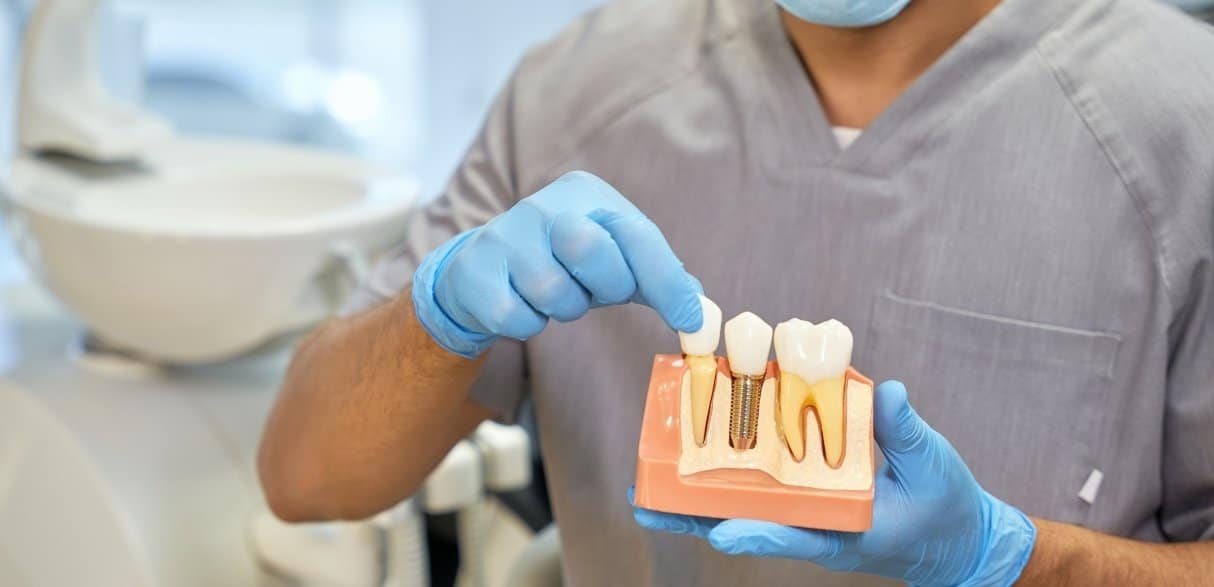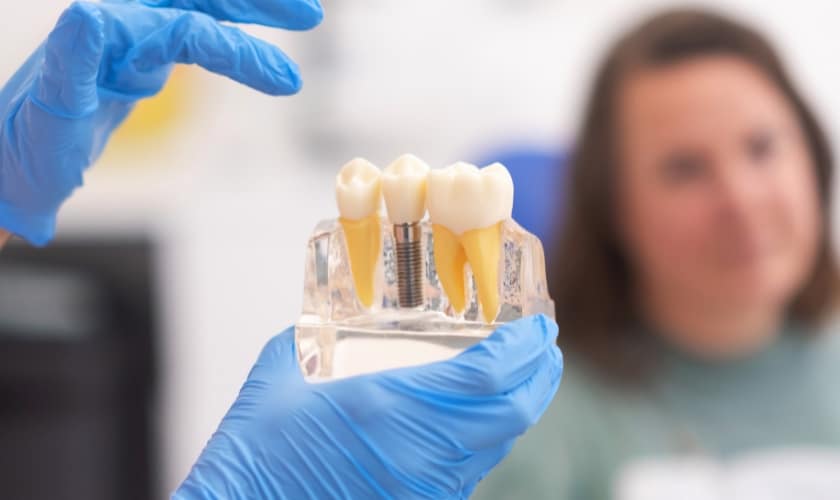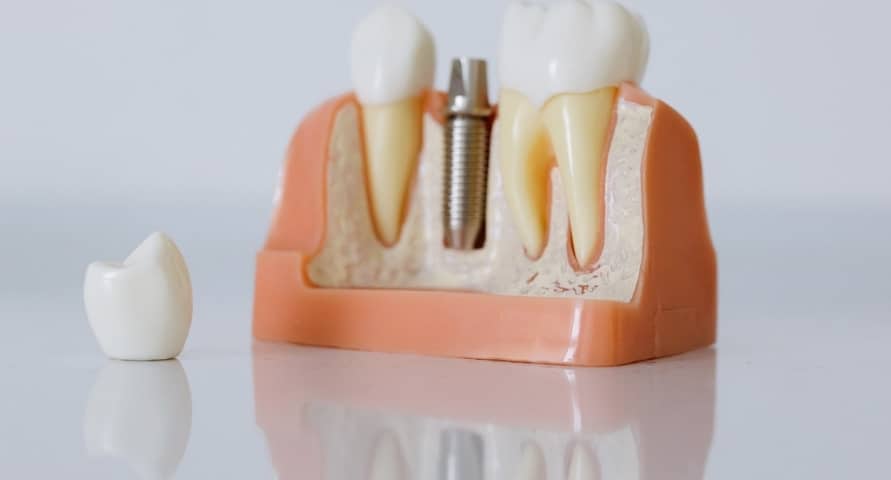245 11th Ave NE Hickory, NC 28601
Are You a Good Candidate for Dental Implants? Key Factors to Consider

Dental implants are an advanced solution to replace missing teeth, offering long-term benefits like natural appearance and functionality. If you’re considering dental implants, it’s crucial to understand if you’re a good candidate. Many people wonder about the process, potential risks, and success rate of implants.
Being well-informed will help you make the right decision. Before diving into the treatment, it’s important to evaluate factors like oral health, bone density, age, and lifestyle. These elements play a significant role in determining whether dental implants are the best choice for you.
What Are Dental Implants?
Dental implants are artificial tooth roots surgically placed into the jawbone to support a replacement tooth or bridge. They consist of three main parts: the titanium post (the implant), the abutment (connector), and the crown (replacement tooth). The titanium post fuses with the jawbone through a process called osseointegration, ensuring stability.
The main benefit of dental implants is their durability. Unlike dentures or bridges, implants are permanent and can last a lifetime with proper care. They also offer superior functionality, allowing you to chew, speak, and smile confidently. Implants provide a natural-looking appearance, blending seamlessly with your existing teeth.
Additionally, they preserve bone health by stimulating the jawbone, preventing bone loss, which often occurs after tooth loss. With proper care, dental implants are a highly effective, long-term solution to missing teeth.
Factors That Determine If You’re a Good Candidate
Oral Health
Your oral health is the foundation of a successful dental implant. Healthy gums are necessary to support the implant and promote healing. If you suffer from gum disease, tooth decay, or any oral infection, these must be treated before moving forward with implants.
An infection or inflamed gums can prevent the implant from properly integrating with the jawbone, leading to failure. A dentist will evaluate your gum health and suggest necessary treatments before implant placement.
Bone Density and Structure
Adequate bone density is essential for the stability of dental implants. If your jawbone has deteriorated due to missing teeth, the implant may not have enough support. Bone loss is common in people without teeth for a long time.
In such cases, bone grafting procedures may be necessary to restore bone volume and provide a strong foundation for the implant. A dentist will use X-rays to assess your bone structure and determine if bone grafting is needed.
Age Considerations
Dental implants are generally recommended for adults whose jaws have fully developed. This typically happens around the age of 18 for females and 21 for males. Younger patients may still be growing, which can interfere with implant placement.
On the other hand, age alone is not a barrier for older adults. Seniors can successfully receive implants if their overall health is good and they meet other criteria.
General Health and Medical Conditions
Certain medical conditions can affect your ability to heal and impact the success of dental implants. For instance, individuals with uncontrolled diabetes may face complications, as the healing process can be slower.
Heart disease, osteoporosis, and autoimmune disorders can also influence implant success. Medications, such as blood thinners or immunosuppressants, might interfere with healing or increase the risk of infection. Your dentist will assess your medical history to determine if underlying conditions might affect the procedure or healing process.
Lifestyle Habits
Your lifestyle habits significantly impact the success of dental implants. Smoking, for example, can hinder the healing process and increase the risk of implant failure. Smoking restricts blood flow to the gums, which slows down the healing of the tissue around the implant.
Similarly, excessive alcohol consumption can impair healing and negatively affect the overall outcome. A healthy lifestyle, which includes maintaining good oral hygiene, will help improve the chances of a successful dental implant.
Personal Expectations and Goals
Before choosing dental implants, it’s important to consider your expectations and long-term dental goals. Dental implants are a great option for many, but they may not be the right solution for everyone. If you are looking for a quick fix or want a solution that’s less expensive than implants, other alternatives like bridges or dentures might be better suited.
Understanding your goals can help you have realistic expectations and make a well-informed decision. Your dentist will discuss different options, ensuring that implants align with your needs.
Consultation with a Dentist: Why It’s Crucial?
A consultation with a dentist is an essential step in determining if dental implants are the right choice for you. During this visit, your dentist will thoroughly examine your oral health, medical history, and lifestyle. The dentist will perform diagnostic tests, such as X-rays or CT scans, to assess your jaw’s bone density and structure.
The dentist will evaluate your gums for signs of disease or infection and determine if you need any preliminary treatments, such as a bone graft or gum treatment. They will also discuss your health conditions and medications to ensure that the implant process won’t interfere with your healing.
Moreover, the consultation helps you understand the entire process, from the procedure to the expected recovery time. A personalized treatment plan will be developed, outlining the steps, timeline, and costs involved. This process allows you to make an informed decision and be fully prepared for the dental implant journey.
The Dental Implant Procedure: A Quick Overview
The dental implant procedure typically involves multiple stages. The first step is the surgical placement of the titanium post into your jawbone, which serves as the root for the artificial tooth. This step is performed under local anesthesia to ensure comfort. Once the post is in place, you’ll need to wait several months for the osseointegration process to occur, during which the implant fuses with the bone.
After healing, the dentist attaches the abutment, which is the connector piece that will hold the crown in place. Impressions of your teeth are taken to create a custom crown that matches the size and shape of your natural teeth. Once the crown is ready, it is securely attached to the abutment, completing the implant.
Healing times vary, but it can take several months for the implant to fully integrate with the bone. Some discomfort after surgery is normal, but it usually subsides within a few days. Proper aftercare, including avoiding hard foods and practicing good oral hygiene, ensures successful healing.
Dental implants can be a life-changing solution for replacing missing teeth. However, before proceeding with the treatment, it’s important to determine if you’re a good candidate. Key factors include your oral health, bone density, medical history, lifestyle habits, and personal goals. Dental implants offer long-term benefits like improved appearance, comfort, and functionality if you meet the necessary criteria.
To find out if dental implants are the right choice for you, schedule a consultation with our professional dentists. We will evaluate your specific situation and guide you through the process. Book your consultation today to take the first step towards a healthier, more confident smile!




